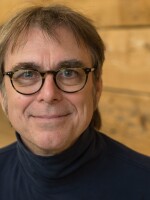There is a story behind roadkill. Millions of accidents every year are caused by collisions with wildlife. How can we manage roadways so that they are safer for everyone, vehicles and animals?
In this month's episode of Outdoor Radio, biologists Kent McFarland and Sara Zahendra are looking for roadkill in the Cold Hollow Mountains of Belvidere, Vermont, with Bridget Butler, Program Director of Cold Hollow to Canada.
The Cold Hollow Mountains host the most intact broadleaf, temperant forest in the world, a travel corridor for many species of wildlife. This corridor can be fragmented or pinched by roadways creating a safety concern for wildlife and people.
Cold Hollow to Canada is a forest conservation nonprofit that focuses on citizen science. They have created a project through iNaturalist that allows users to upload pictures and locations from their smartphone of roadkill sitings. Anyone can help gather this data which can then be used to track wildlife patterns and manage the use of roadways.
Find more about Cold Hollow to Canada's WildPaths project at these sites:
- Visit the Cold Hollow to Canada and their WildPaths project.
- Participate in the WildPaths project on iNaturalist.
- Check out Vermont ANR Biofinder and explore Vermont's lands and waters that support important ecosystems, natural communities, habitats and species.
Outdoor Radio is produced in collaboration with the Vermont Center For Ecostudies.





